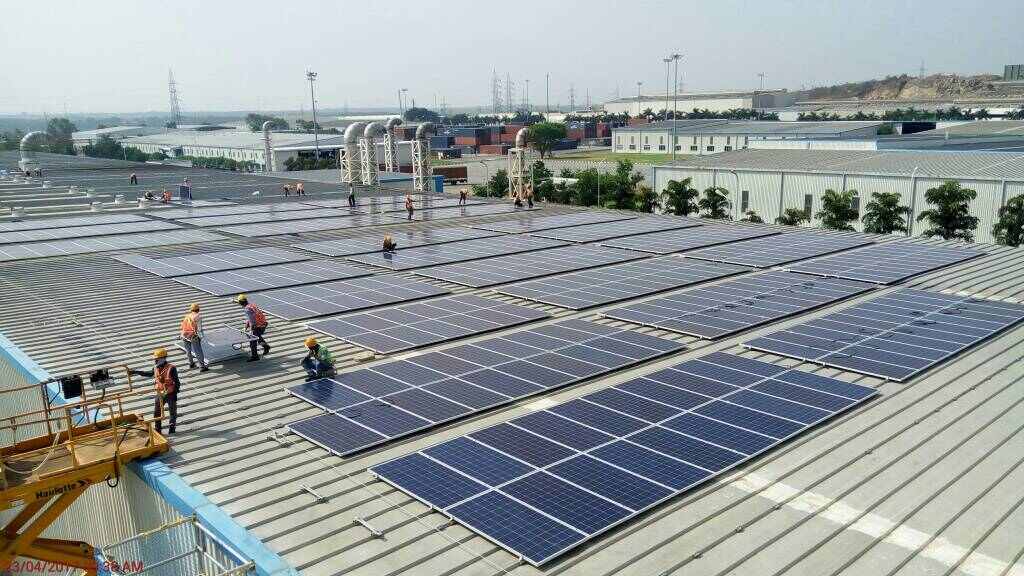
(Image Courtesy: U Solar Clean Energy)
Following the sudden suspension the Chinee-Sri Lanka energy agreement, that would have seen a Chinese company construct solar power systems in in Jaffna's Delft, Nainathivu, and Alanathivu islets, India has struck and agreement to take on these projects.
Announcing this new arrangement the High Commission of India lauded the deal as “a milestone in India-Sri Lanka Energy Partnership” and a step forwards in Sri Lanka-India relations.
“It may be recalled that the energy sector was identified as a priority area in the India-Sri Lanka Economic Partnership Vision document which was adopted during the visit of President Ranil Wickremesinghe to India in July 2023,” the announcement noted.
The announcement added:
“Several landmark initiatives such as the power grid connectivity, multi-product two-way oil pipeline are currently under discussion between India and Sri Lanka in the energy sphere.”
Sri Lanka Sustainable Energy Authority signed the contract this week with the Indian company, U Solar Clean Energy Solutions, in the presence of High Commissioner of India Santosh Jha and Minister of State for Power and Energy Indika Anuruddha.
The previous arrangement with the Chinese firm, Sino Soar Hybrid Technology, was previously cancelled due to security concerns from “a third party”. Following this cancellation, the Chinese firm signed contracts with the Maldivian government to build solar projects there instead.
India has shown significant interest in economic opportunities in Sri Lanka. According to the Indian High Commission, the Indian government’s overall development partnership portfolio stands at USD 5 billion with USD 600 million in grants alone. While several flagship grant projects such as the 1990 Suwaseriya Emergency Ambulance are complete, others such as the third and fourth phases of the Indian Housing Project and Sri Lanka Unique Digital Identity Project are under different stages of implementation.
Despite India’s key interest in Sri Lanka, there has often been Sinhala nationalist objections to the greater involvement of India in Sri Lanka’s development.
We need your support
Sri Lanka is one of the most dangerous places in the world to be a journalist. Tamil journalists are particularly at threat, with at least 41 media workers known to have been killed by the Sri Lankan state or its paramilitaries during and after the armed conflict.
Despite the risks, our team on the ground remain committed to providing detailed and accurate reporting of developments in the Tamil homeland, across the island and around the world, as well as providing expert analysis and insight from the Tamil point of view
We need your support in keeping our journalism going. Support our work today.
For more ways to donate visit https://donate.tamilguardian.com.

